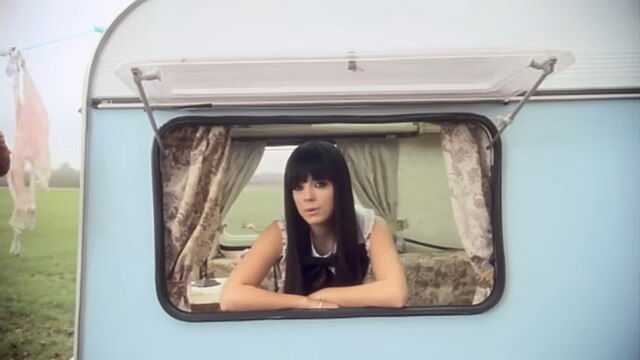Song Stories: Lily Allen: The Fear
When Lily Allen released 'The Fear' in 2008 she immediately and perfectly encapsulates the feelings and fears of a generation, who were dealing with anxieties around fame, mass consumerism, self worth. In a new social media saturated world. Something that at the time was still a very new phenomenon. Wrapped up in a dreamy pop soundscape, the songs lyrics are much darker that cut through the perfect idea portrayed by celebrity culture, reality TV and social media.
Now over fifteen years later 'The Fear' remains just as if not even more relevant with the growing pressures to live the perfectly curated materialistic life.
On the surface, ‘The Fear’ is a gentle, almost whimsical pop track. Produced by Greg Kurstin, the song features warm acoustic guitars, subtle electronic beats, and an airy, dreamlike quality that makes it sound almost comforting. Yet, this sonic lightness contrasts sharply with the song’s dark and satirical lyrics, creating a feeling of unease beneath the polished production.
At first glance, ‘The Fear’ might seem like a celebration of materialism and vanity. The opening lines set the tone:
"I want to be rich, and I want lots of moneyI don’t care about clever, I don’t care about funny"
These lyrics reflect the mindset of a culture obsessed with fame and financial success, where intelligence and humor take a backseat to status and image. Allen adopts the persona of someone who has bought into these values, presenting a satirical but disturbingly accurate reflection of modern aspirations.
As the song progresses, it becomes clear that the narrator is not confident in this lifestyle but rather trapped within it, struggling to understand what truly matters:
"I don’t know what’s right and what’s real anymore
And I don’t know how I’m meant to feel anymore"
This confession of uncertainty highlights the emotional toll of living in a world where self-worth is dictated by external validation.

One of the most striking lines in ‘The Fear’ comes in the second verse:
"I look at the sun and I look in the mirror
I'm on the right track, yeah we're onto a winner."
On the surface, this lyric suggests a moment of self-reflection, as if the narrator is searching for guidance or reassurance. But when placed within the context of British media, it takes on an even sharper meaning.
The Sun and The Mirror are two of the biggest tabloid newspapers in the UK—both notorious for their sensationalist reporting, celebrity gossip, and obsession with wealth, scandal, and status.
By referencing "the sun" and "the mirror" in the same breath, Allen could be making a pointed commentary on how the British press fuels the very culture she critiques in ‘The Fear’. The tabloids simultaneously glorify and tear down celebrities, presenting a distorted version of reality where fame, money, and controversy are the most valuable currencies.
Allen’s lyric suggests that people—particularly those in the public eye—look to these media outlets as a measure of their own success. To see yourself in The Sun or The Mirror is to be "on the right track," to be relevant, to be a "winner" in the eyes of a society obsessed with visibility and status.
The irony, of course, is that the media’s portrayal of fame is often a hollow illusion. British tabloids are infamous for building people up only to knock them down—something Allen herself experienced throughout her career. From her personal relationships to her outspoken opinions, she was frequently the subject of tabloid scrutiny, much like the very figures she critiques in ‘The Fear’.
In early 2009, ‘The Fear’ climbed to No.1 on the UK Singles Chart, where it stayed for four consecutive weeks. It became Lily Allen’s second UK No.1 hit (following ‘Smile’ in 2006) and won Best British Single at the 2010 BRIT Awards. Its commercial success demonstrated that audiences were not only drawn to the song’s catchy melody but also resonated with its critique of the very culture they were consuming.
Lily Allen’s ability to blend satire with vulnerability is what makes ‘The Fear’ so powerful. It doesn’t just mock the shallowness of fame and consumerism, it also captures the anxiety and confusion that come with trying to navigate a world that prioritizes appearances over substance.